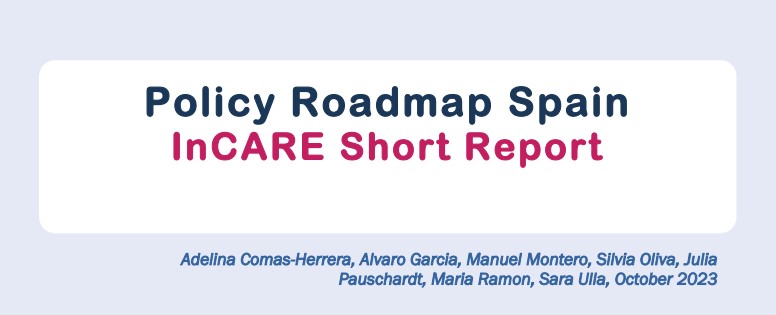The InCARE project aimed to improve the knowledge base and pilot test how to develop…

Supporting the sustainability of social experimentation (Eurocarers)
The continuation and expansion of the InCARE pilots were at the core of discussions during the InCARE final conference held in Vienna on the 28th of September 2023. A dedicated workshop, analysing each pilot from a unique perspective, brought to light three critical factors contributing to sustainability.
First and foremost, participants emphasised the need to secure adequate funding for Long-Term Care (LTC) in the community. It is indeed imperative for governments to allocate a sufficient share of GDP to LTC and extend support to local authorities in enhancing their caregiving capacities. For instance, North Macedonia should allocate more extensive financial resources to cover healthcare and long-term care expenses. The specific mechanisms for obtaining additional funding should be tailored to each country’s context, potentially involving supplementary taxation, partnerships with insurance companies, public-private collaborations, and thoughtfully structured copayments. Demonstrating the potential for future savings in healthcare and caregiving costs makes a compelling case for strategic investments in LTC services.
Importantly, the removal of administrative barriers and the establishment of flexible LTC systems are indispensable to foster social innovation, which can then be tested, adapted and seamlessly integrated into mainstream services. International collaboration not only enriches our understanding of social innovation but also enhances the management of LTC systems. Taking the example of Austria, efforts should be made to simplify service structures at the local level, resulting in more accessible information for users.
Finally, coordination should be given paramount importance across all levels of governance. At the national level, the appointment of a dedicated LTC reforms coordinator is essential, capable of galvanising efforts to address the often-underestimated care crisis. At the regional and local levels, coordination should be entrenched in the core management of LTC services, placing the individual at the centre of care provision. Working conditions in the care sector should allow employees across different services adequate time to get acquainted with one another, thereby building trust, an indispensable element for smooth coordination. Integrating coordination into daily work not only contributes to job satisfaction and career development but also enhances the attractiveness of caregiving professions.
The European Care Strategy provides strong incentives to build a sustainable improvement in LTC through social innovation. With this in mind, the InCARE project offers insight into the three vital dimensions of funding, simplification and coordination that should be addressed in the LTC policy plan for LTC. Member states are expected to communicate this plan by mid-2024.



This Post Has 0 Comments